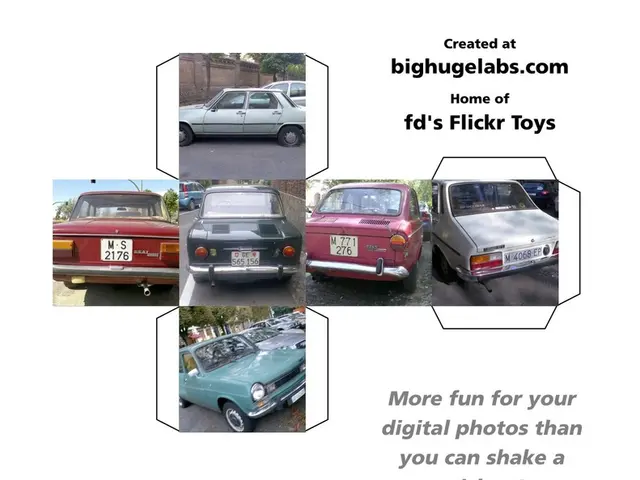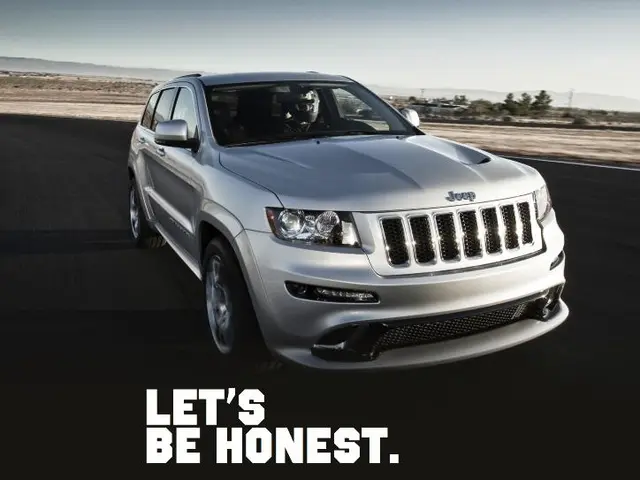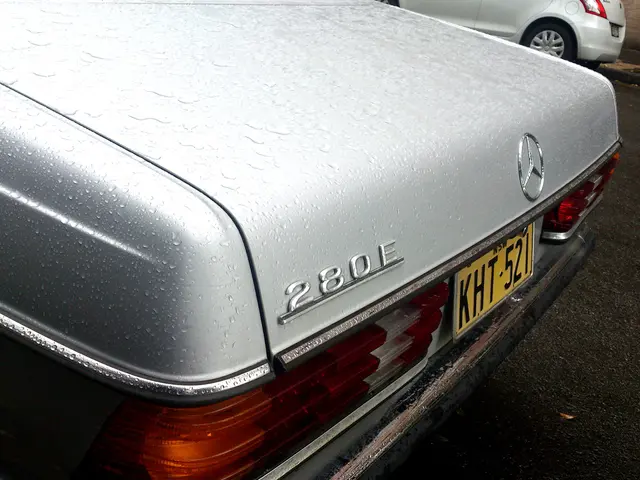The Cleanest (and Dirtiest) Cars on Germany's Roads: A District-by-District Breakdown
In Germany, Vehicles with the Cleanest and Dirtiest Emissions Commute Regularly - Germany's Vehicles with the Highest and Lowest Emission Levels on the Road
Let's dive into the cleanliness factor of cars on German roads - it varies quite a bit depending on where you're driving. A data analysis by dpa, using information from the Federal Motor Transport Authority (KBA), reveals a wide discrepancy in the proportion of vehicles rocking outdated exhaust technology. One district's number could be as high as one-third, while others only sport a tenth, depending on the region. There's also a significant difference in the cleanest cars across Germany.
Topping the list of districts with the highest proportion of vehicles registered under the older and less stringent Euro 1 to Euro 4 emission standards is Lüchow-Dannenberg in Lower Saxony, with a whopping 33.7%. Elbe-Elster and Duisburg City follow closely behind, with 31.7% and 30.7% respectively. Emmendingen, Nienburg, Gelsenkirchen City, Spree-Neisse, Herne City, and Görlitz also hover above the 30% mark.
Car cities have a good run here
Contrastingly, Wolfsburg comes in at a low 10.9%, followed by Wiesbaden with 15.4%, Suhl (15.9), and Munich district (16.1), and city (17.8). Now, it's essential to note that both Wolfsburg and Munich, being the headquarters of major car manufacturers like Volkswagen and BMW, have an advantage due to a high number of self-registrations and company cars. These vehicles often skew the data towards cleaner vehicles.
It's important to remember that not all of these cars are limited to the district they're registered in. Case in point: Wolfsburg, home to VW, has a mind-boggling 973 cars per 1,000 residents - that's more than one car for every adult! As a result, car cities land at the top of the list for the cleanest cars.
If we consider the proportion of pure electric cars and Euro 6-compliant vehicles, Wolfsburg takes the lead with a staggering 77.2%, followed by Wiesbaden with 70.6%. Munich city and district come in third and fourth place with 64.8% and 64% respectively, ahead of Main-Taunus district and the Audi and Mercedes headquarters, Ingolstadt and Stuttgart, which sit comfortably in the low sixties. Income might also play a part here, with wealthier areas typically purchasing newer, cleaner cars.
With that said, Wolfsburg stands out for having a higher proportion of cleaner cars compared to other cities in Germany due to several factors:
- Presence of Volkswagen: Being the hub of Volkswagen Group, a major automaker, the city has a higher concentration of company cars and new vehicles equipped with cleaner technologies, such as EVs and vehicles meeting the Euro 6 emissions standard.
- Income and Affluence: Wolfsburg is a relatively affluent area, and wealthier regions tend to purchase newer, cleaner vehicles.
- Mobility and Emissions: The emphasis on cleaner vehicles in Wolfsburg contributes positively to reducing exhaust emissions and improving air quality in the area.
However, the city's association with Volkswagen also raises concerns related to past issues, such as the Volkswagen emissions scandal, which involved software manipulation to deceive emissions tests. This scandal led to significant fines and increased scrutiny of emissions standards across the automotive industry.
In terms of mobility, the prevalence of cleaner vehicles in Wolfsburg aligns with broader efforts towards more environmentally friendly transportation solutions, which are crucial for reducing greenhouse gas emissions and improving urban air quality. The relaxation of Euro 7 rules and the scrapping of a planned EV factory in Wolfsburg highlight ongoing challenges and adjustments in the automotive sector's transition towards electric vehicles.
- The high proportion of cleaner cars in Wolfsburg can be attributed to the presence of Volkswagen, a major automaker, which results in a higher concentration of company cars and new vehicles with cleaner technologies like electric vehicles and those meeting the Euro 6 emissions standard.
- In addition to the automotive industry, Wolfsburg's status as a relatively affluent area also contributes to the high number of newer, cleaner vehicles in the city.
- The emphasis on cleaner vehicles in Wolfsburg not only improves air quality but also aligns with broader efforts towards more environmentally friendly transportation solutions, which are integral to reducing greenhouse gas emissions and improving urban air quality.
- Despite the positive aspects, the city's association with Volkswagen is still tainted by past issues, such as the Volkswagen emissions scandal, where software manipulation was used to deceive emissions tests, leading to significant fines and increased scrutiny of emissions standards across the automotive industry.








